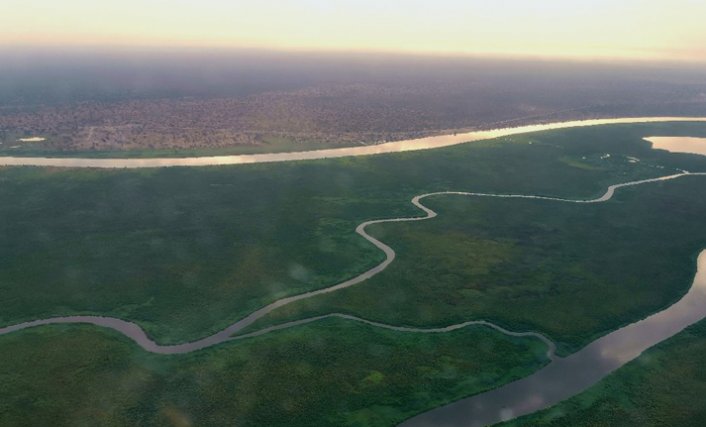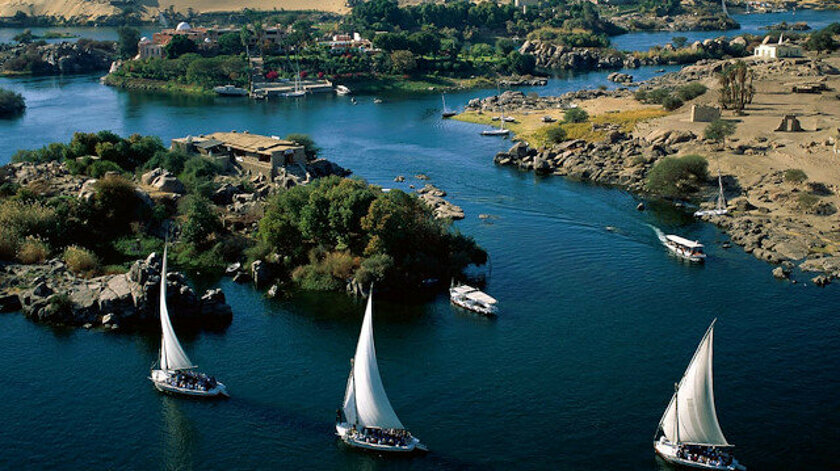Blog
Will hydro-politics shape the future?

It’s been called the ‘next oil’. In the years to come, hydro-politics has the potential to affect water supply geopolitics, diplomacy and even conflict.
The 2008 James Bond film Quantum of Solace pits 007 against an evil criminal syndicate bent on global domination. Sounds par for the course… but this particular network of baddies isn’t using lasers or missiles to cause havoc.
No, the Quantum organisation has a uniquely dastardly plan: seizing control of Bolivia’s water supply.
While the evil syndicate’s role in the film might not be entirely realistic, this piece of fiction does raise a scenario that is worth considering seriously: what would happen if a country’s water supply was cut off? What would be the global fallout?
Think about it: sure, we need water to survive. But it also fuels a country’s commerce, trade, innovation and economic success. This has been the case for time immemorial, from the Nile in Ancient Egypt to the Amazon in the Brazilian rainforest.
While bodies of water typically help form natural borders of countries, several nations tend to share access to rivers or lakes – the Nile runs through nearly a dozen countries alone, for example. Given how conflict-prone humankind is, it’s surprising there haven’t been more dust-ups of a “hydro-political” nature.
Experts agree: if there was no access to water, there would be no world peace. That’s why one of the grand challenges of the next few decades could be maintaining this ultra-sensitive stasis of water management. In the 21st Century, freshwater supplies are drying up, climate change is raising sea levels and altering borders, explosive population growth is straining world resources, and global hyper-nationalism is testing diplomatic relations. Meanwhile, water demand is expected to go up 55% between 2000 and 2050. In the coming century, in terms of its value as a global resource, it’s been described as “the next oil.”
So what can we do to guarantee global access to water – and thus global peace?

World peace hinges on hydro-politics
Water’s role in shaping politics goes back centuries. “In the ancient world, large bodies of water formed natural boundaries for people and nations,” says Zenia Tata, executive director of global development and international expansion at XPrize, an organisation that’s holding a worldwide competition for innovative water management solutions. “But today’s geopolitical landscape looks very different,” and access to water remains paramount.
Experts agree: if there was no access to water, there would be no world peace
In many areas of the world, bodies of water run through several countries or brush up against many countries’ borders. That’s where something called “riparian water rights” come into play.
In the case of a river, upstream countries – where the river originates – enjoy inherent power and leverage over the downstream countries. These kinds of riparian hotspots abound. And they’re often in places that are already fraught.
In the Middle East, the Jordan River basin is the primary water source for many regions, including Jordan, Palestine, and Israel, regions of long-standing political tensions. In Syria, meanwhile, the worst drought in close to a millennium has been partly blamed for the country’s generation-defining civil war and radicalisation that led to the formation of so-called Islamic State.
Egypt and Ethiopia have sparred over development of water from the River Nile for centuries: the iconic river originates in Ethiopia but ends in Egypt, which sets up an inherently combative relationship. In 2015, Egypt and Ethiopia put enough differences aside to construct the Grand Ethiopian Renaissance Dam on the river, which is Africa’s largest dam and is due to open in July. The countries also signed a deal that strives to ensure fair river access.
Tata points to many developed or emerging markets that have had similar challenges: “Take the example of Malaysia’s 99-year deal with Singapore, giving them paid access to fresh water from the Johor River,” Tata says. “Singapore is arguably one of the most progressive nations on our planet, but without sufficient fresh water resources within its boundaries, all industry, trade, commerce and culture would all stand still.”
The answer might lie in how countries with more food and water export those supplies to other countries
According to the Pacific Institute, a California-based water resource information nonprofit, there have been dozens of water-related conflicts worldwide from 2000BC to present day.
So how do we make sure everyone gets enough water – and thus keep relative world peace in the 21st Century? The real answer won’t lie in countries controlling others’ water supply in what’s been dubbed so-called “water wars” – rather, the answer might lie in how countries with more food and water export those supplies to other countries.
